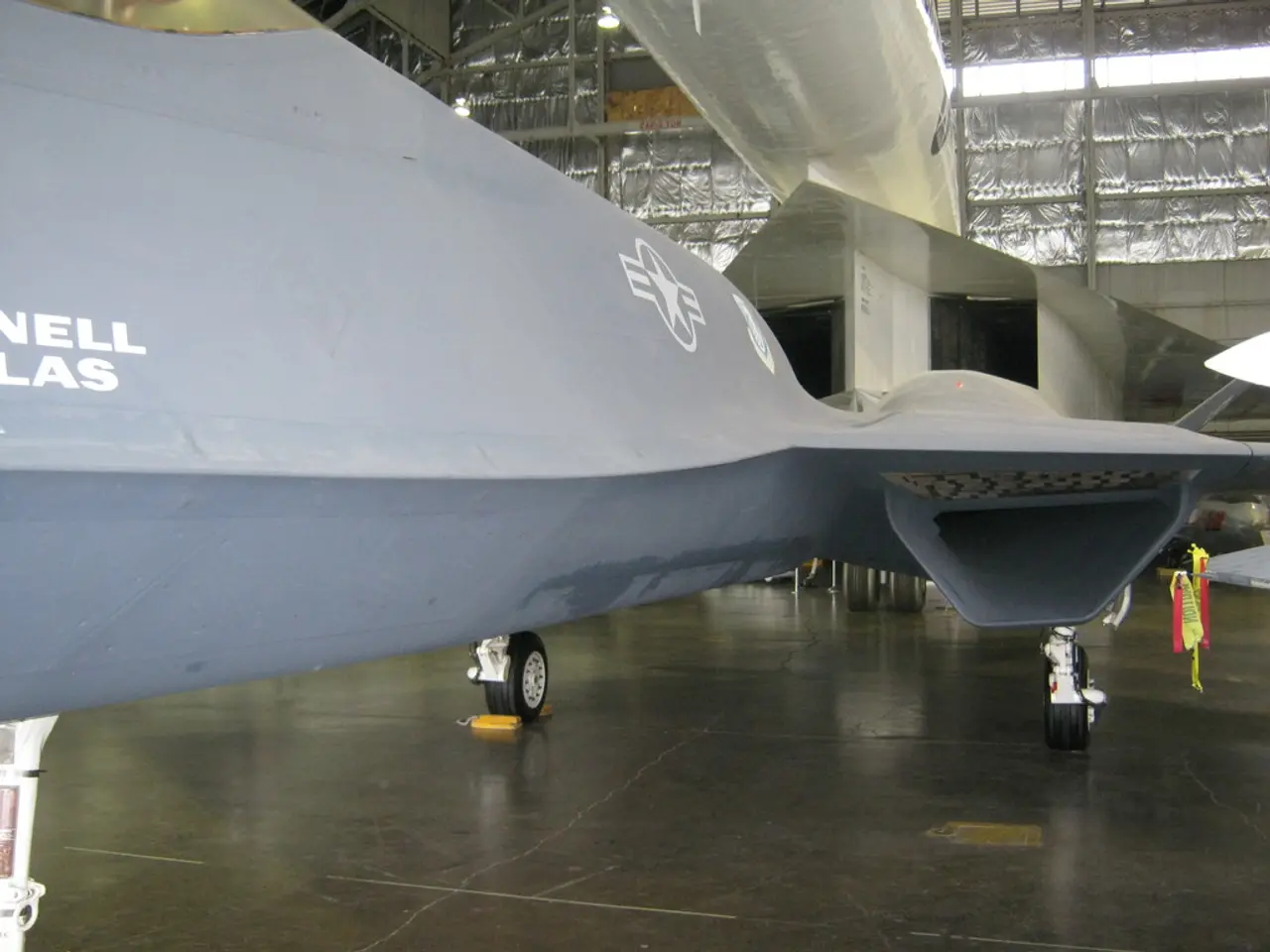Statement on Secure Grounds
In the dynamic world of aerospace and defense, Airbus is navigating a complex landscape marked by competition and consolidation. As the company continues to operate in a volatile macroeconomic environment and under geopolitical tensions, it faces a series of significant risks that could impact its performance.
First and foremost, geopolitical and macroeconomic environment risks loom large. US tariffs announced in April 2025 have introduced uncertainty regarding their full impact, particularly concerning cost increases for sub-assemblies imported into Airbus's final assembly lines in the US and China. Although Airbus is still assessing these impacts, it has not recognized any material financial impact as of 30 June 2025.
Supply chain disruptions are another challenge. Persistent bottlenecks, including engine shortages and delays from suppliers, affected Airbus’s deliveries and free cash flow in Q2 2025. These bottlenecks contributed to a shortfall in aircraft deliveries (306 delivered against an 820 target) and a negative free cash flow of €1.6 billion.
Airbus must also manage its exposure to shifting demand and operational pressures, including how tariffs might indirectly affect air traffic, customers, and its supply chain over time. Despite these challenges, Airbus’s defense sector demand and backlog remain strong, which partly offsets these risks.
Beyond geopolitical and supply chain risks, Airbus is also exposed to a myriad of other challenges. Significant labour disputes can occur due to collective bargaining. Aggravation of adverse geopolitical events, such as the war in Ukraine, export control restrictions, international sanctions, conflicts, and rising military tensions around the world, can impact the company.
Airbus's businesses are subject to changes in general economic, political, or market conditions. Legal, financial, and governmental risks related to international transactions or global trade (e.g. tariffs) can arise. The lingering effects of the COVID-19 pandemic can impact the company's operations. Industrial operations and supply chain disruptions can be caused by economic, geopolitical factors, or physical/cyber security threats.
Currency exchange rate fluctuations, particularly between the Euro and the U.S. dollar, can impact the company. Changes in societal expectations and regulatory requirements about climate change are relevant. Research and development costs for new products are a factor. The success of internal performance plans depends on cost reduction and productivity efforts.
The outcome of political and legal processes, including government financing and budgets for defence and space procurement, can impact the company. Customer, supplier, and subcontractor performance or contract negotiations, including financing issues, can impact the company as well. Product performance risks and programme development and management risks exist. Significant disruptions in air travel can occur due to the spread of disease or terrorist attacks.
In summary, Airbus’s key risks revolve around external geopolitical and trade policy uncertainties, supply chain constraints limiting delivery performance, and the broader macroeconomic environment's indirect effects on demand and operations. The company continues to assess these risks and work towards mitigating their potential impact.
[1] Airbus SE Unaudited Condensed Interim IFRS Consolidated Financial Statements for the three-month period ended 30 June 2025. Published on 30 July 2025. [2] Note 3 of the company’s Notes to the Financial Statements discusses the impact of the Macroeconomic Environment in detail.
- Airbus, operating in the aerospace and defense industry, faces geopolitical and macroeconomic risks, as exemplified by US tariffs affecting its final assembly lines.
- In addition to these risks, Airbus also confronts challenges such as supply chain disruptions, which impacted its deliveries and free cash flow in Q2 2025, and economic, political, or market changes that could affect its businesses.
- Beyond geopolitical and supply chain risks, Airbus is exposed to other factors like significant labor disputes, adverse geopolitical events, currency exchange rate fluctuations, societal expectations about climate change, research and development costs, and political and legal processes affecting government financing and defense procurement.
- The company's performance might be affected by external factors such as the lingering effects of the COVID-19 pandemic, industrial operations and supply chain disruptions caused by economic, geopolitical factors, or physical/cyber security threats, customer, supplier, and subcontractor performance issues during contract negotiations, product performance risks, programme development and management risks, and significant disruptions in air travel due to disease outbreaks or terrorist attacks.








